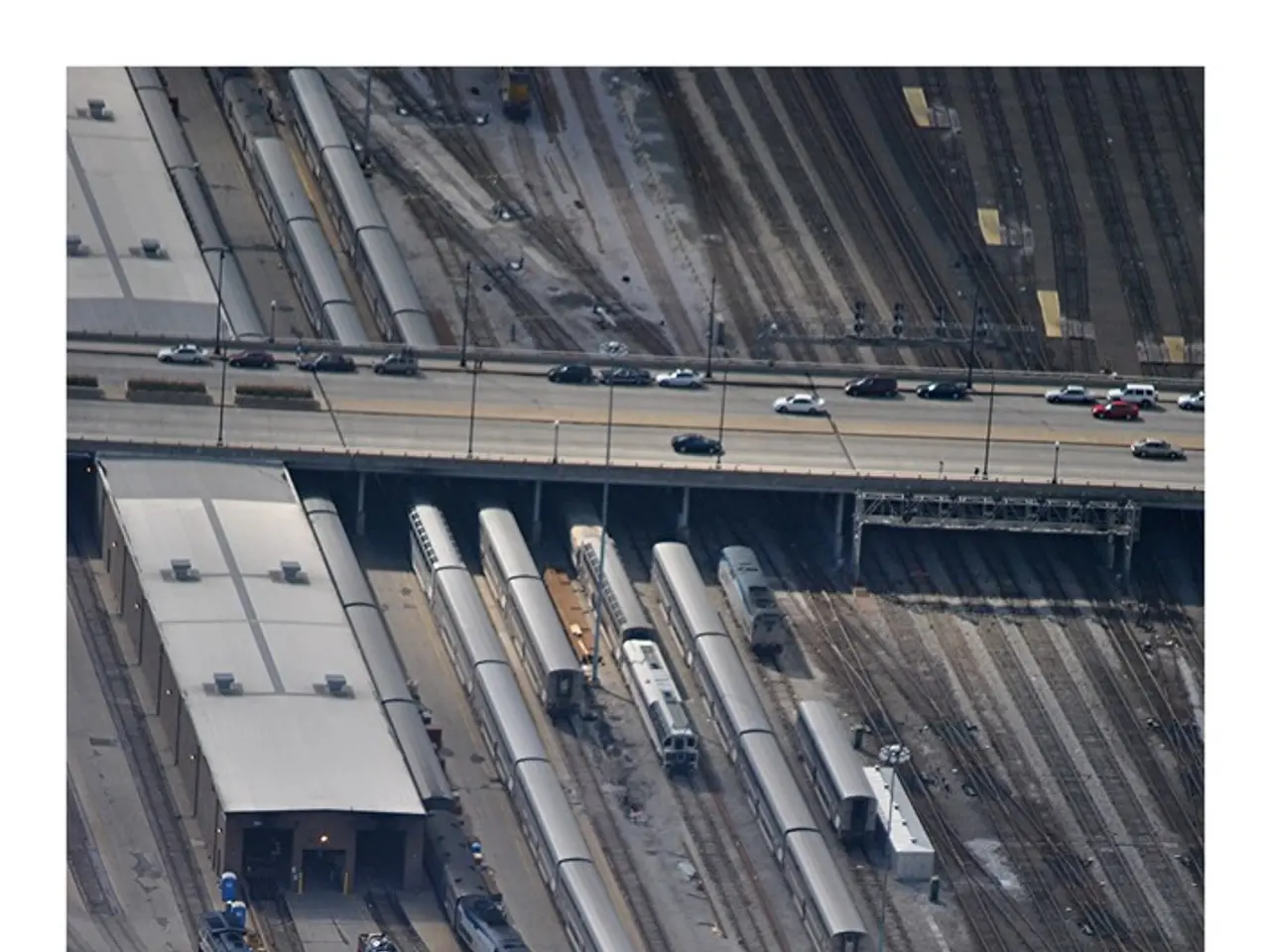Roadway access limited on Mosel Bridge close to Schengen, effective from Monday
The Moselle bridge over the Mosel at Schengen, a crucial connection between Germany and Luxembourg, is currently undergoing repairs due to a defect discovered in its steel composite hollow box girder. As a result, the bridge is subject to lane closures and heavy vehicle restrictions.
Starting from Monday, only one lane will be open in each direction on the bridge. This has led to possible congestion, and drivers are advised to plan for delays and follow safety guidance.
Vehicles weighing over 44 tonnes are entirely banned from using the bridge. Heavy vehicles up to 44 tonnes must maintain a minimum distance of 50 meters between each other while crossing the bridge. Buses and lorries over 3.5 tonnes are banned from overtaking on the bridge and must keep the minimum 50-meter distance, including in traffic jams.
These restrictions are indefinite, pending further inspections and evaluations coordinated between Luxembourg and German authorities. The Autobahn GmbH of the Federal Government, responsible for managing Germany's motorways, has not announced any changes in the traffic restrictions on the bridge.
The Autobahn GmbH is in close contact with the relevant authorities in Luxembourg regarding the bridge issue. However, they have not mentioned any alternative routes for cross-border traffic during the bridge's repair period.
The "Schengen" access ramp of the A13 motorway, specifically for freight vehicles over 3.5 tonnes, remains closed due to safety concerns related to the defect. This has forced trucks to take detours through the Perl junction on the A8 motorway in Germany or via village routes, causing additional traffic and safety challenges.
Despite these challenges, the Autobahn GmbH's primary focus is on the restoration of the bridge to its original condition. They have not disclosed any plans for compensating businesses or individuals affected by the bridge's traffic restrictions.
The Autobahn GmbH announced the traffic restrictions as a precautionary measure, recognising the importance of the bridge in cross-border traffic. The goal is to have the bridge available again without restrictions after repairs.
- The disruption on the Moselle bridge affects various industries, as the heavy vehicle restrictions likely impact transportation and logistics, particularly the automotive and public-transit sectors.
- Finance might be affected, as businesses and individuals may incur additional costs due to delays and detours around the bridge repairs, impacting their profitability.
- Despite the challenges, both the Autobahn GmbH of Germany and the relevant Luxembourg authorities are working together to ensure the safe repair of the bridge, addressing the needs of the industry, transport, and the public.




